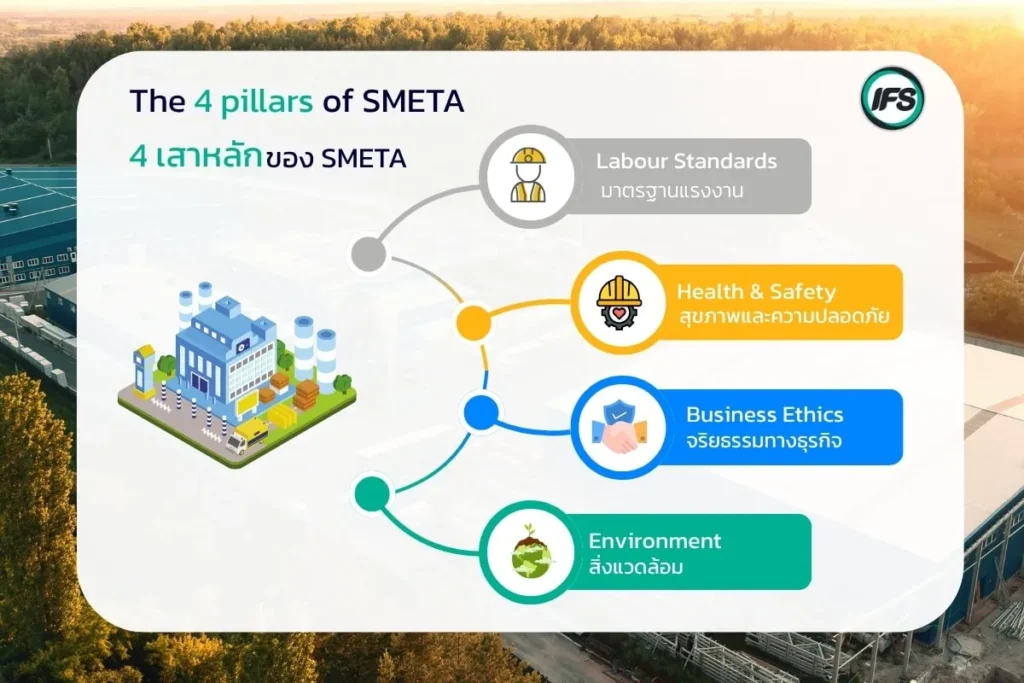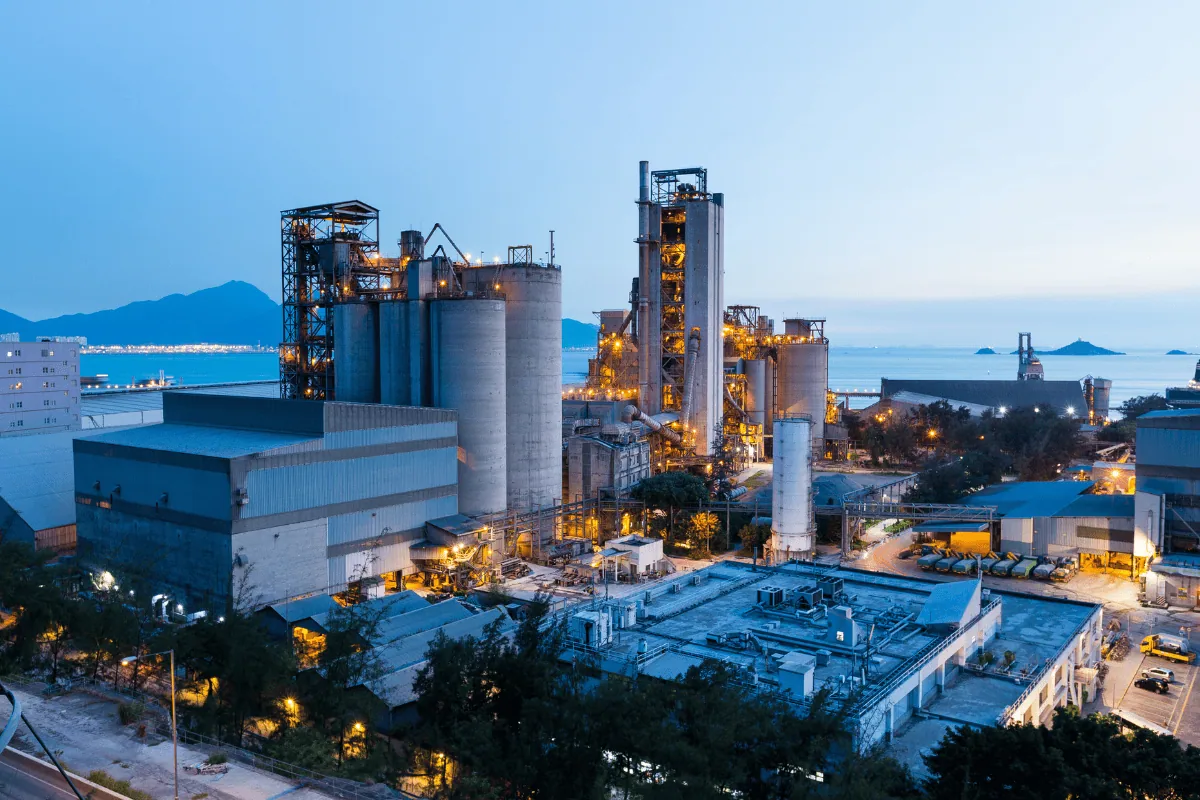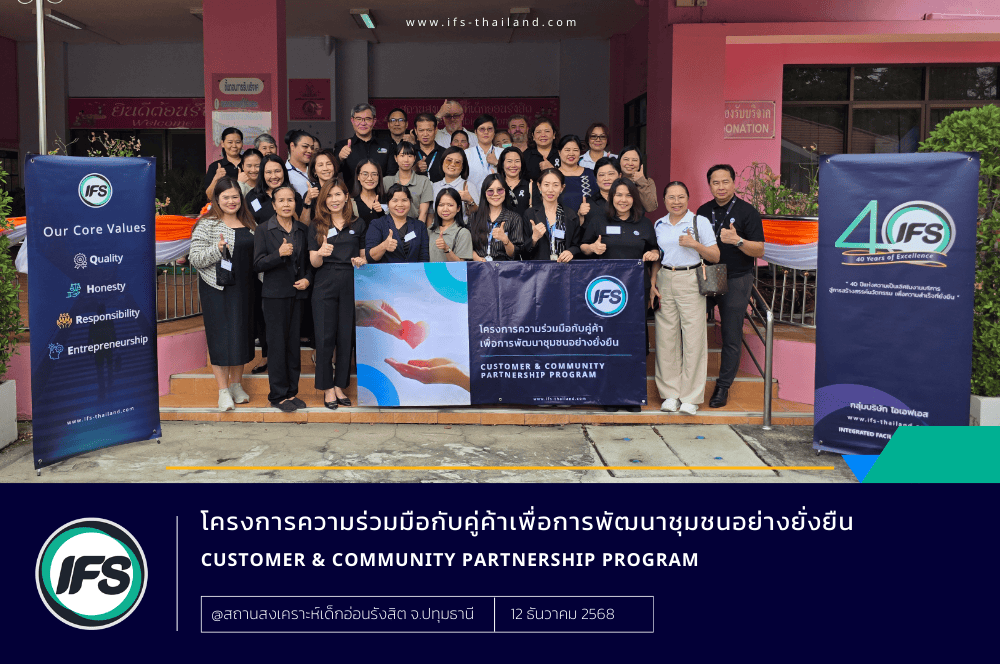Understanding SMETA: Why Modern Factories Need to Know
SMETA stands for Sedex Members’ Ethical Trade Audit. It serves as a license-like audit for factories. In today’s business landscape, leading brands do not only focus on product quality; they must also ensure that their supplying factories treat workers fairly, maintain workplace safety, and operate responsibly toward the environment.
This is where SMETA comes in—a recognized audit standard that has become a “passport” for factories aiming to export to international markets.
The audit evaluates whether a factory
- Treats its employees fairly
- Ensures occupational health and safety
- Protects the environment
- Conducts business with integrity, transparency, and accountability
One of the key advantages is that, once certified, the audit report can be shared with multiple clients. This eliminates the need for repeated inspections, saving both time and costs.

The Core Principles Behind SMETA: 9 Workers’ Rights Everyone Should Know
SMETA is based on the ETI Base Code, which outlines nine fundamental labor rights
- Freely chosen employment – no forced labor.
- Freedom of association – employees may form unions.
- Safe and hygienic workplaces – free from hazards.
- No child labor – strictly prohibits underage workers.
- Fair wages – adequate to support living needs.
- Reasonable working hours – avoids excessive overtime.
- No discrimination – equal treatment for all employees.
- Legally recognized employment – clear, documented contracts.
- Humane treatment – prohibits abuse or degrading practices.

Choosing Between SMETA 2-Pillar and 4-Pillar
SMETA 2-Pillar: The Basic Framework Covers two key areas
- Labor standards
- Health & safety
Best suited for:
- Factories new to SMETA
- Industries with low environmental risk
- Customers not requiring environmental or business ethics audits
SMETA 4-Pillar: The Comprehensive Approach Covers four key areas
- Labor standards
- Health & safety
- Environmental management (e.g., energy, water, waste)
- Business ethics (anti-bribery, anti-corruption)
Best suited for:
- Clients that specifically require 4-Pillar audits
- High-risk industries (chemicals, food, textiles, electronics)
- Organizations aspiring to achieve global manufacturing standards
Summary
- Low risk/new to SMETA → 2-Pillar
- Client requirement/high-risk sector → 4-Pillar

The 4 Steps of SMETA Implementation (Simpler Than You Think)
1. Preparation
- Gather documentation (licenses, contracts, training records)
- Complete the online self-assessment form
- Prepare facilities for inspection
2. On-site Audit
- Auditors conduct factory walkthroughs
- Review documents
- Interview employees and management
- Collect photographic evidence
3.Audit Report
- Findings summarized by auditors
- Areas for improvement identified
- Corrective Action Plan (CAP) created with timelines
4. Follow-up & Verification
- Implement corrective measures
- Upload evidence of improvements
- Auditors verify and confirm closure
Benefits of Implementing SMETA
- Global Market Access – Builds trust with international brands and enhances supplier credibility.
- Reduced Duplication of Audits – One certification can be shared across multiple clients via the Sedex platform, saving time and costs.
- Improved Management Systems – Enhances operational efficiency and creates better working environments.
- Mitigation of Legal & Reputational Risks – Prevents compliance issues and safeguards brand reputation.
- Sustainable Growth – Establishes a solid foundation for long-term business success.
Conclusion
SMETA is a vital tool that enables manufacturing organizations in Thailand to align with global standards and meet international expectations.
Starting with SMETA 2-Pillar helps lay a strong foundation, while progressing to SMETA 4-Pillar as the organization matures provides a comprehensive approach to sustainability and competitiveness in the global marketplace.
Investing in SMETA today means laying the groundwork for future growth and success.
Organizations interested in SMETA should begin by assessing their readiness and developing a plan that matches both their industry profile and market requirements.
Want to elevate your factory with SMETA certification?
Learn more about our services at IFS for tailored consulting and solutions designed for your industry.
📧 Contact: info@ifs-thailand
Sources: SMETA overview by Sedex







